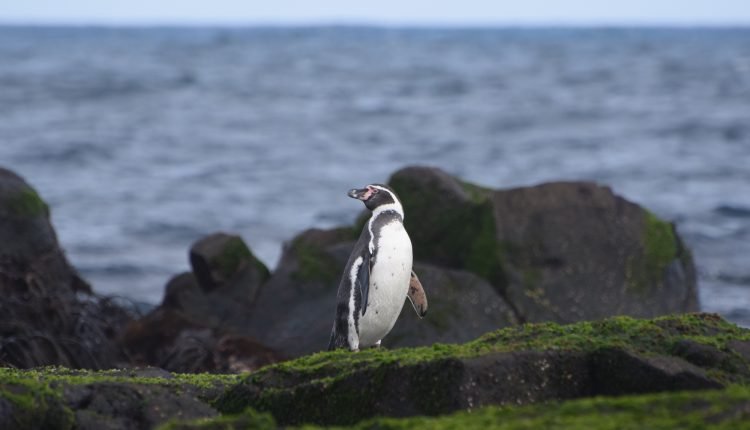[ad_1]
On December 2, the Ministry of the Environment of Chile and the international nonprofit organization Island Care declared Chile’s Pajaro Uno Island free of invasive rodents. The partners removed invasive rats to restore the island’s native seabirds and protect the marine environment.
Invasive rats on the island are devouring Chilean seabird eggs and chicks. Seabirds deposit critical nutrients from the sea to land through their guano, which then flows into nearby waters to sustain reefs. The loss of these nutrients can have devastating effects on the terrestrial and marine environment.
Pajaro Uno Island is home to many colonies of Chilean seabird species. The 70-hectare island supports important seabird breeding populations: about 3,000 pairs of Peruvian Boobies, the largest population of Kelp Gulls in northern Chile with about 2,000 pairs, and about 600 pairs of breeding vulnerable Humboldt Penguins.
In August 2020, thanks to the support of David and Lucile Packard FoundationIsland Conservation staff traveled to Pajaro Uno Island to implement conservation actions to protect native birds by removing invasive rats.
After two years and several native species monitoring trips, the team returned to the island to conduct a Rapid Eradication Assessment. This assessment collected evidence proving that the rats were gone. With this amazing news, efforts can begin to rewild the island by enticing former seabird species to return, thereby accelerating the recovery of terrestrial and marine ecosystems to their natural potential.
“This is very good news. Invasive species remain a problem on other islands in the country. Through the removal of invasive species and effective biosecurity to prevent reintroduction, we can support the recovery of ecosystems and protect biodiversity,” said Maisa Rojas, Chile’s Minister of the Environment. “The successful restoration of Pajaro Uno is a step that demonstrates our commitment to ecological restoration and nature conservation. The whole world is facing a crisis of biodiversity loss, so all recovery actions are important.”
“Before the rats’ impact on the island, Pajaro Uno was an important nesting site for the Endangered Yunco (or Peruvian Diving-petrel),” said Maria Jose Vilches, Pajaro Uno Project Manager for Island Conservation. “This species has been removed from the island, but we hope to encourage their return through social attraction as we successfully did on Chanaral Island, Chile.”
Invasive rats on islands are a major cause of species extinction worldwide, particularly for seabird species. They were accidentally introduced to Pajaro Uno Island several years ago as a stowaway vessel associated with human use of the island.
The Pajaro Uno project used a new method that requires less bait for conservation. This reduced the risk of off-target exposure and reduced the cost of the project.
“The Island of Pajaro Uno and surrounding sectors on the continent are priority areas for the conservation of Chile’s biodiversity due to the high endemism that the area inhabits. Ecological restoration projects that ensure the recovery of native species in the future are very important to us,” said Daniela Manuschevich, Head of the Natural Resources and Biodiversity Division of the Ministry of the Environment.
Pajaro Uno Island is located in front of Caleta Hornos in the commune of La Higuera and is part of the Coquimbo Coastal System, an ecosystem made up of seven islands that together with their surrounding waters support not only large colonies of endangered and emblematic seabirds that breed on the islands, but also migratory seabirds and marine mammals.
To learn more about this project or donate to Island Conservation, please click here.
Thanks to Island Conservation for providing this news.
How penguin feathers stay ice-free

Read our newsletter!
Sign up for our free e-newsletter to receive news, bird photos, lure and ID tips, and more delivered to your inbox.
Sign Up for Free

Comments are closed, but trackbacks and pingbacks are open.